Best foliage for Christmas decor – 8 types of greenery for natural, festive interiors
This holiday season, why not source festive decor from your own backyard with our top pick of the best foliage for Christmas decorations

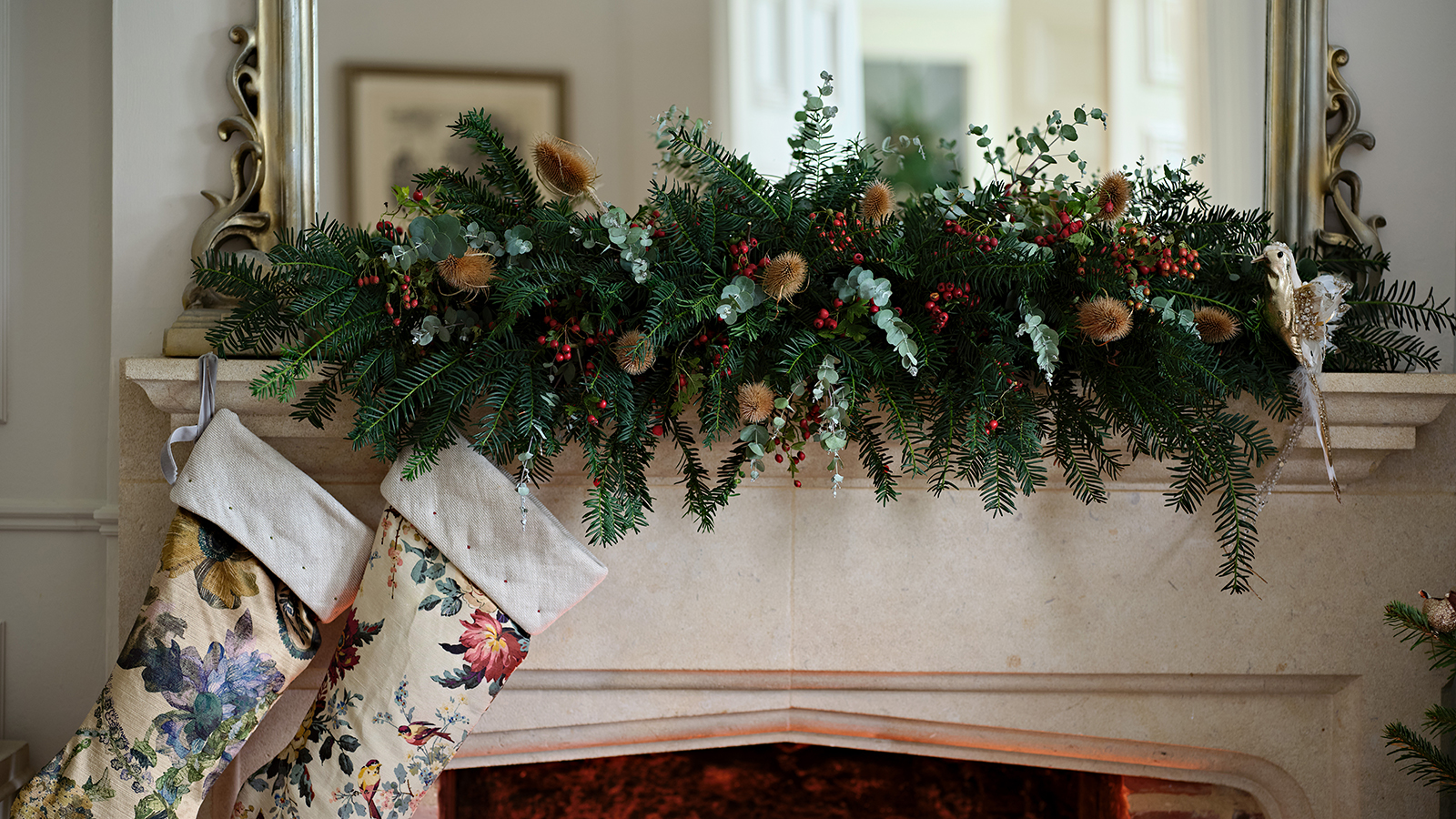
Design expertise in your inbox – from inspiring decorating ideas and beautiful celebrity homes to practical gardening advice and shopping round-ups.
You are now subscribed
Your newsletter sign-up was successful
Want to add more newsletters?

Twice a week
Homes&Gardens
The ultimate interior design resource from the world's leading experts - discover inspiring decorating ideas, color scheming know-how, garden inspiration and shopping expertise.

Once a week
In The Loop from Next In Design
Members of the Next in Design Circle will receive In the Loop, our weekly email filled with trade news, names to know and spotlight moments. Together we’re building a brighter design future.

Twice a week
Cucina
Whether you’re passionate about hosting exquisite dinners, experimenting with culinary trends, or perfecting your kitchen's design with timeless elegance and innovative functionality, this newsletter is here to inspire
Opt for sustainable crafting this holiday season by making use of the bounty in your backyard simply makes sense. Seek out the perfect plants for Christmas foliage decorations, to transform into beautiful Christmas wreath ideas, delicate garlands and statement centerpieces.
Natural foliage decorations are a trend we see returning year after year, and choosing them over store-bought pieces will help ease eco-anxiety by reducing waste and cost.
Cristina Solis, Sustainability Consultant at Green Hive, outlines why you should love the natural greenery trend for Christmas wreaths and garlands for 2023:
'Rather than relying on plastic or synthetic decorations, many people are opting for genuine elements like pine branches, holly, and eucalyptus to beautify their homes,' she says. 'These organic choices not only add a fresh, fragrant charm but are also eco-friendly, as they can be composted after the holiday season.'
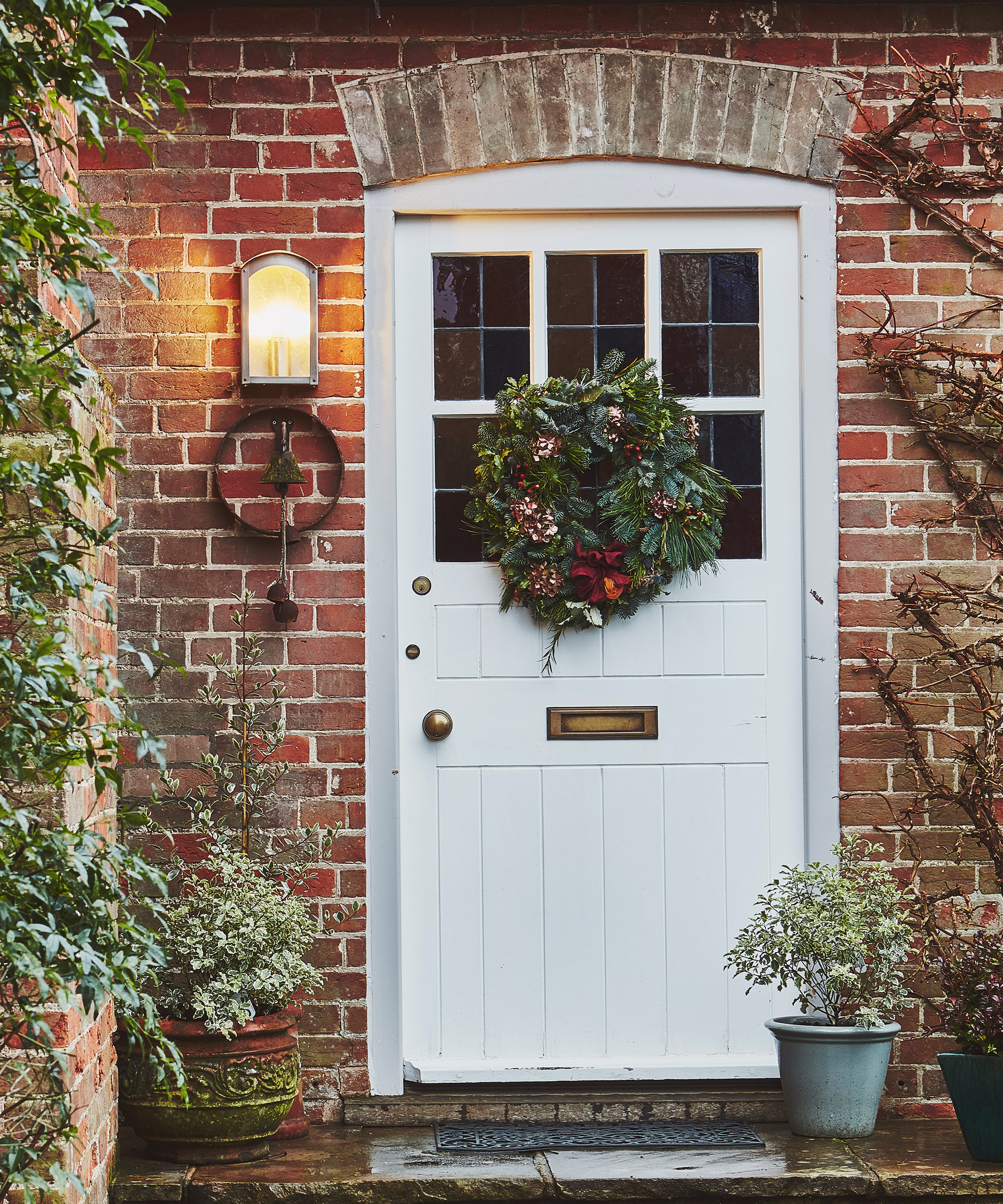
For wreath making, you'll need a good quality base like this set of natural grapevine wreaths from Amazon
8 of the best foliage plants for Christmas decor
As well as servicing your interiors, these picks are among the best foliage plants for adding year-round structure to your garden borders. So you could say, they're not just for Christmas.
And though the date for when to start decorating for Christmas is a hotly debated topic, there's no doubt it's time to start planning your ideas.
To transform your Christmas foliage plants, all you'll need are some good secateurs like these Nevlers Red Bypass Pruning Shears from Walmart and begin snipping sprigs from your chosen plants.
Design expertise in your inbox – from inspiring decorating ideas and beautiful celebrity homes to practical gardening advice and shopping round-ups.
Eucalyptus
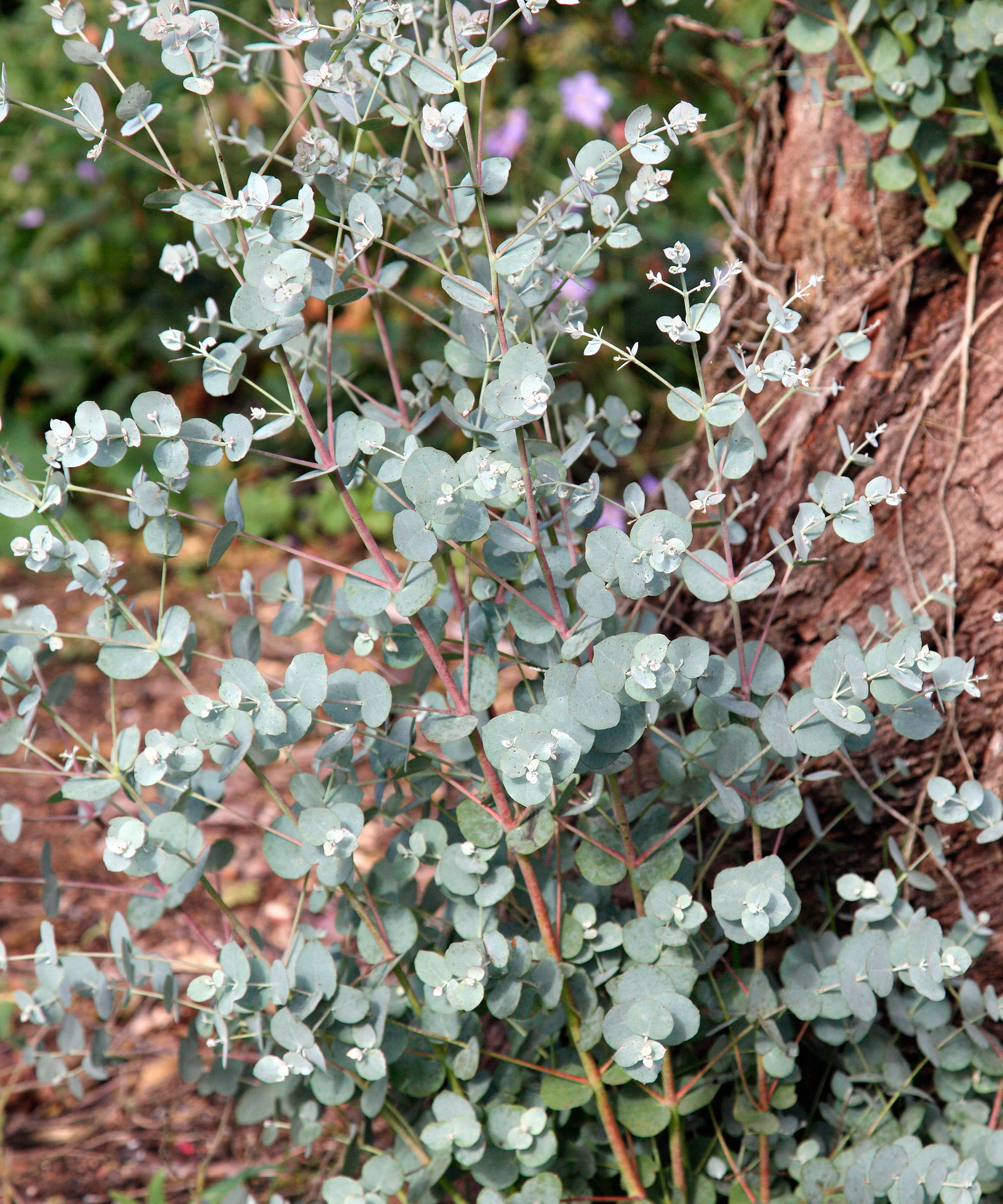
Eucalyptus will give off a beautiful aroma when you brush past it
This should be on your list if you want to learn how to make a Christmas wreath using foliage. Not only is it beautifully aromatic, but sprays of silver-blue eucalyptus gunnii add a contemporary look.
Grown as either a shrub or a tree, this species of eucalyptus is fast growing and easy to care for. The real challenge comes in containing it, as it can grow as tall as 80ft if it is not pruned back hard in the spring.
It is the young foliage which has the pretty blue-green color. The more mature it is, the greener the leaves become. As a garden plant it has another plus: the prettily textured bark, which semi-peels to reveal different tones, from pink to gray white.
Eucalyptus is an evergreen, so there’s no problem with having a good supply in the winter garden.
Bay
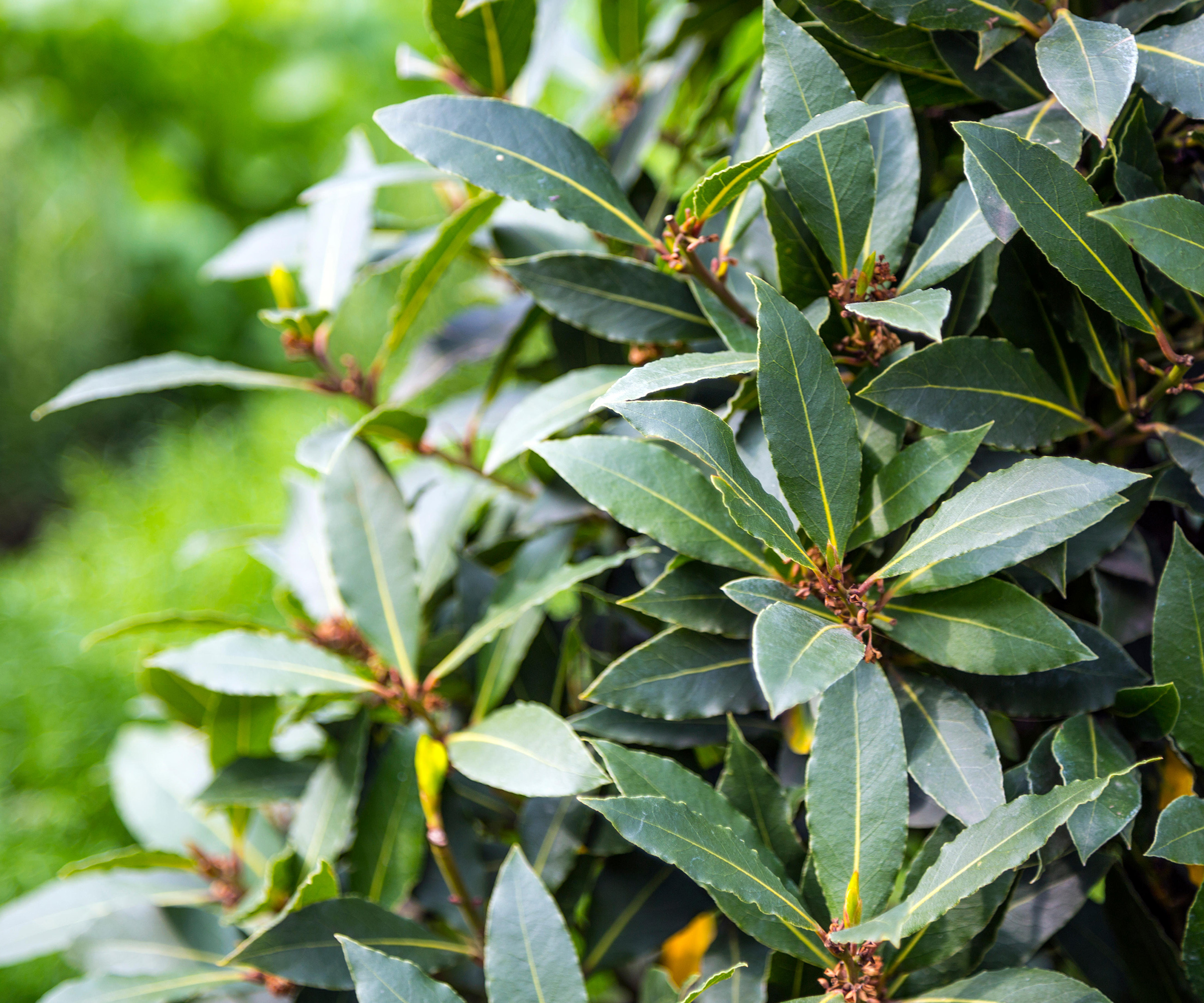
As well as looking festive, bay leaves are edible and will add depth of flavor when sprinkled into your Holiday cooking
The glossy, edible green leaves will add depth to a Christmas garland. A popular evergreen shrub which can be grown as a container gardening idea, or it could be shaped into topiary with a rounded top. It needs full sun or partial shade to thrive, but it is an easy plant to grow.
Tom Yates, Founder of Wreaths, advises splitting your Christmas foliage between indoor and outdoor decorations. 'We’re seeing the rise of external decor with homeowners looking to really amplify their Christmas decorations both inside and outside of the home.'
Potted bay can be used as a standalone outdoor decoration, just add twinkling lights and have them flanking either side of your front door for an easy festive lift.
To plant bay in a container, use organic potting compost and feed with your chosen fertilizer every couple of weeks from mid-spring to late summer. To keep it healthy, and to stop the leaves from yellowing which is a common problem, repot it every two years in spring.
Rosemary
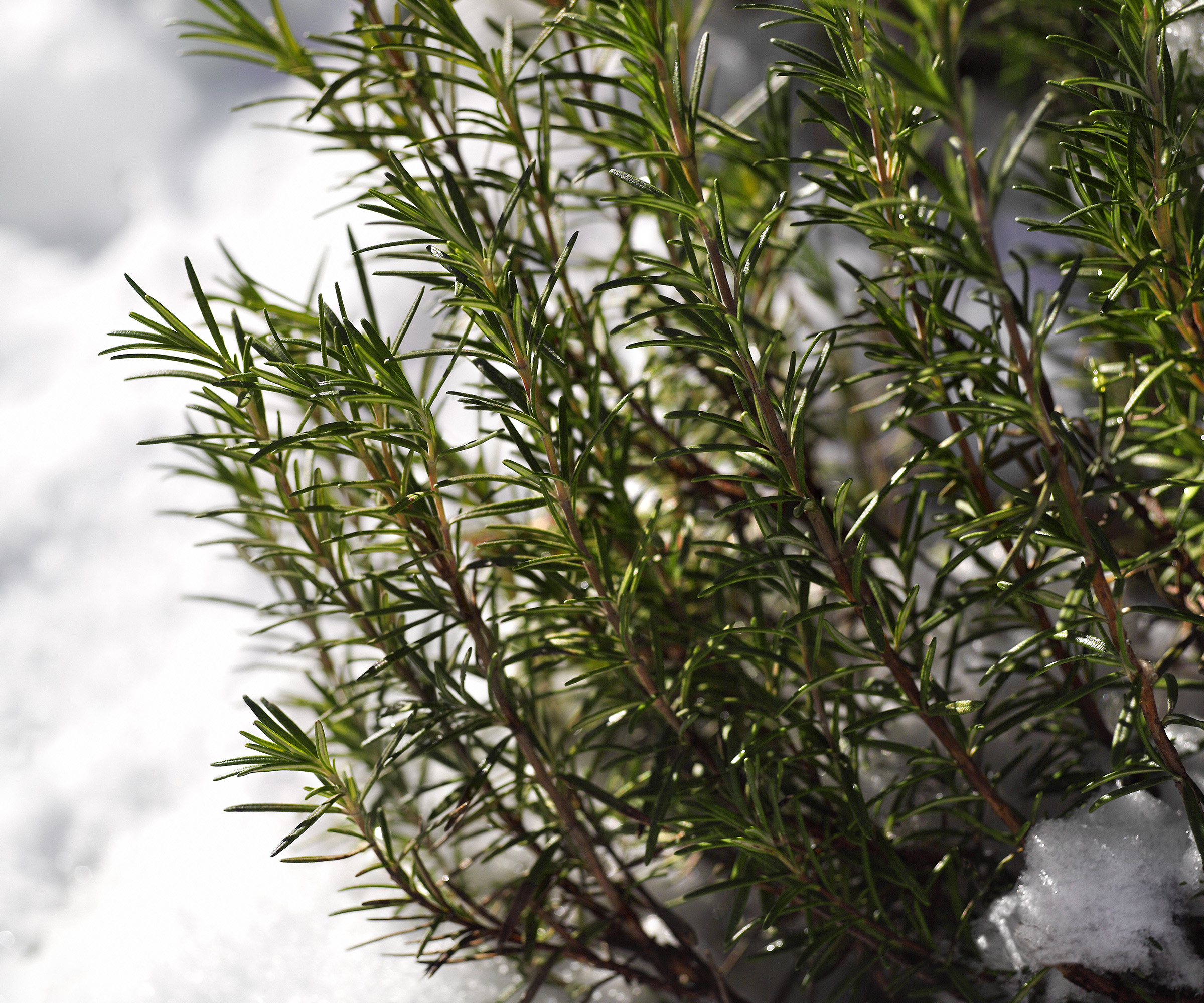
Rosemary is top when it comes to rich scent
Fresh herbs make ideal plants for Christmas foliage, but choose woody, evergreen ones for a lasting display. Rosemary is one of the most aromatic herbs to grow in your garden as it's a real trooper, an evergreen perennial which keeps going year-round.
Its bendy branches are well suited for twisting into shapes. Try creating some mini rosemary wreaths and securing them with floristry wire, or incorporate strands into a larger garland.
Rosemary prefers a sheltered, sunny spot, and if you live in a very cold area, it will do best in pots. After it flowers in late spring or late summer, prune the rosemary to avoid the appearance of bare, woody stems.
Holly
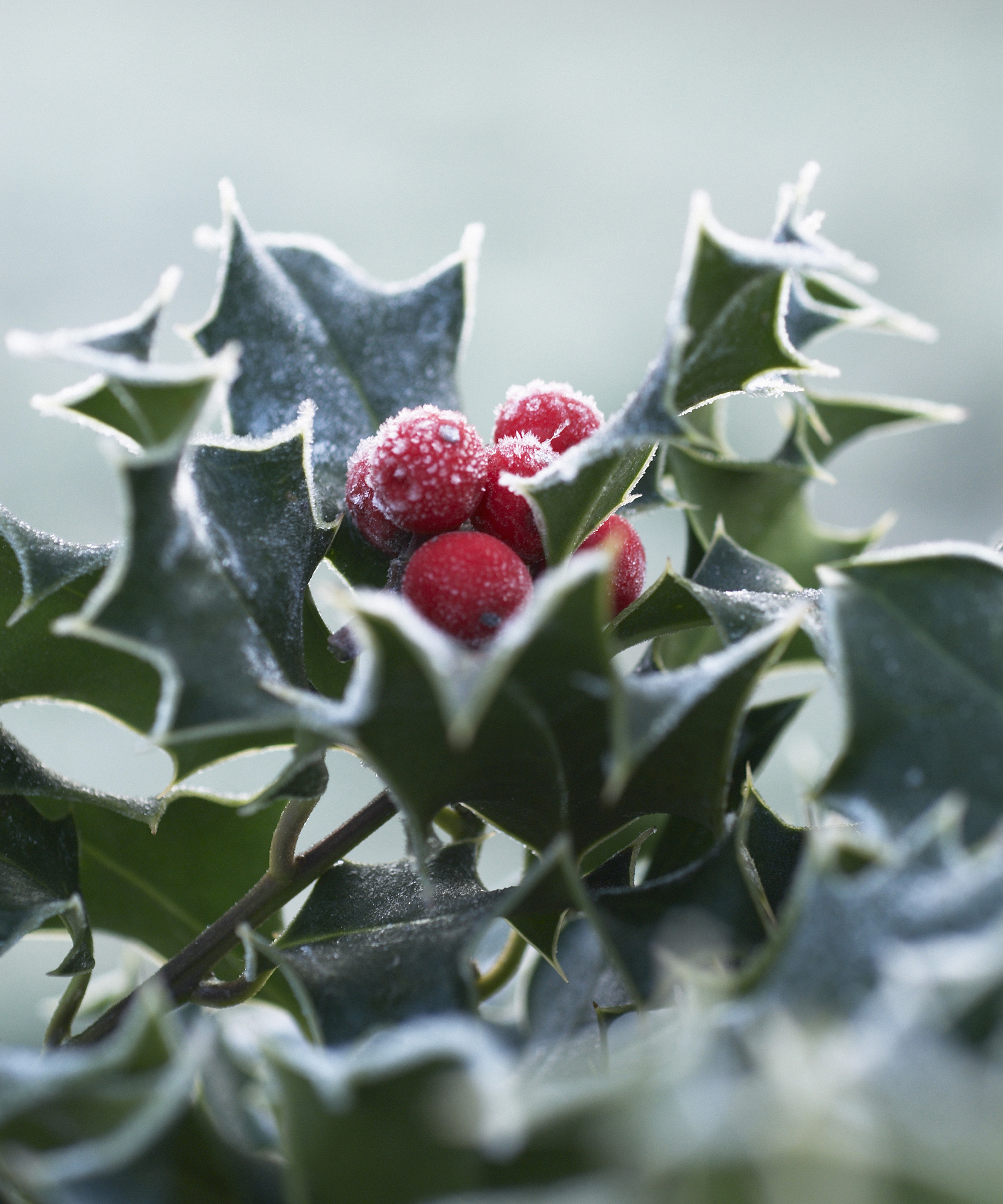
Nothing says Christmas quite like holly
The best holly for a garland is English holly (Ilex aquifolium) with its glossy green leaves and shiny scarlet berries.
However when choosing a holly species to grow in your garden it's important to note that for some holly to produce berries, a male and a female plant is needed for pollination, and only the female ones will bear fruit. Check the label for a small ‘f’ after the plant name when purchasing.
The partner tree does not have to be in your garden, so if there are other hollies in the neighborhood, this might be enough to ensure that your plant will be laden with berries.
American Holly from Fast Growing Trees is worth considering as it doesn't need a male counterpart in order to produce berries.
Hollies are ideal trees with red berries and can be grown in containers filled with a nutrient rich compost. They need to be kept well-watered to give them the best chance of producing plenty of fruit.
Ivy
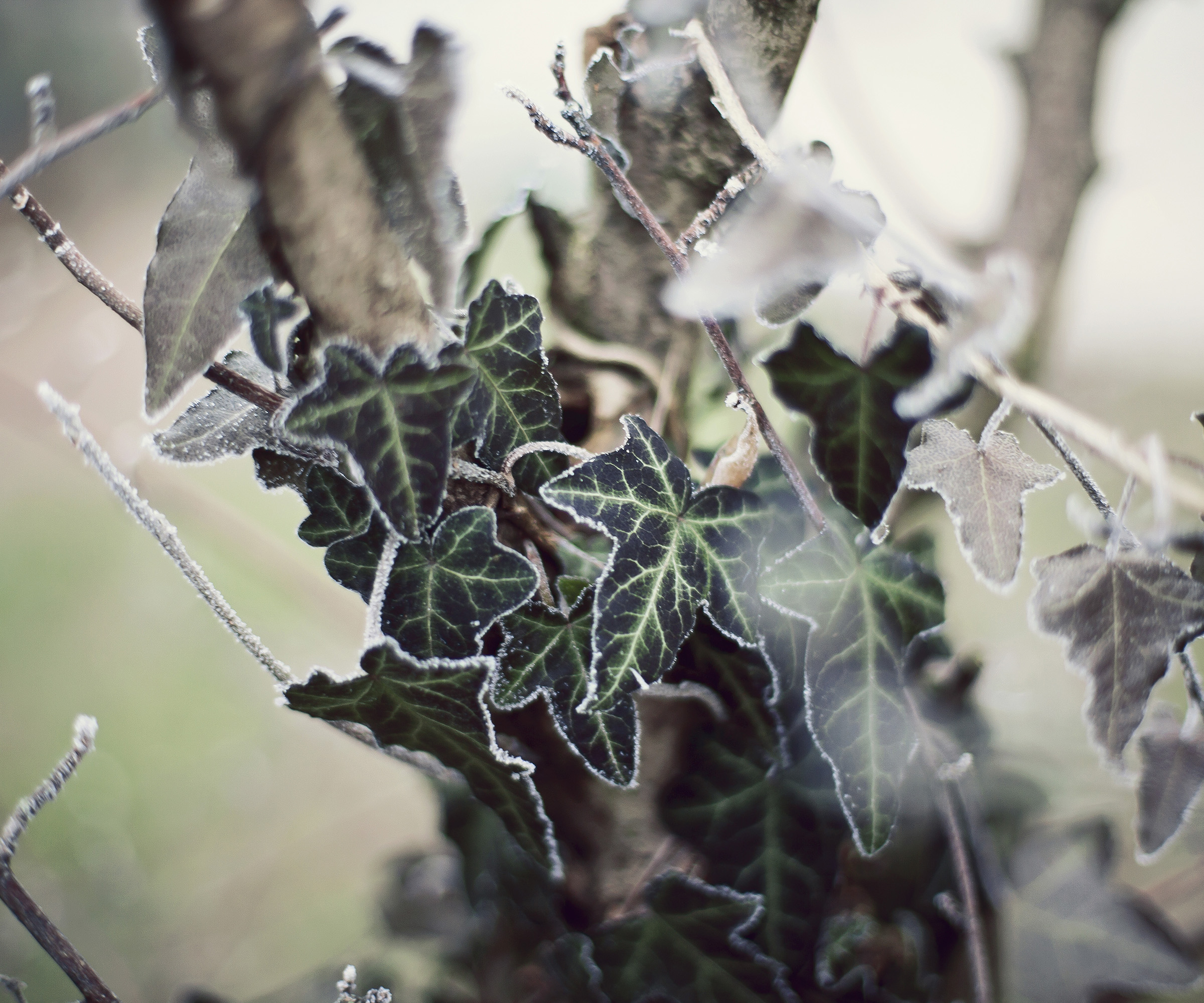
Hedera Helix is mostly known as common Ivy
It’s seen by some as an invasive plant, but evergreen ivy (Hedera) can provide interest in the garden all year round, plus plenty of curling, twisty fronds and interesting flower heads and berries, to add to a festive wreath.
Tom Yates favors a spruce garland for his indoor displays, and ivy is an ideal addition to this: 'For indoor decorations I highly recommend a spruce garland, which couples classic Christmas foliage with an item that can sit just as easily across banisters as it can across the mantle.'
Not to mention you can try growing it in your garden for free, as you can grow ivy from cuttings easily. Ivy is simple to grow, thriving in the shadiest spots, and providing ground cover and valuable habitats for wildlife.
The flowers come in the fall, providing a good, late source of nectar for bees, and the black berries show in midwinter. Ivy does take over if it is left to get out of control. Pruning it back hard in mid-spring will keep it nicely contained.
Myrtle
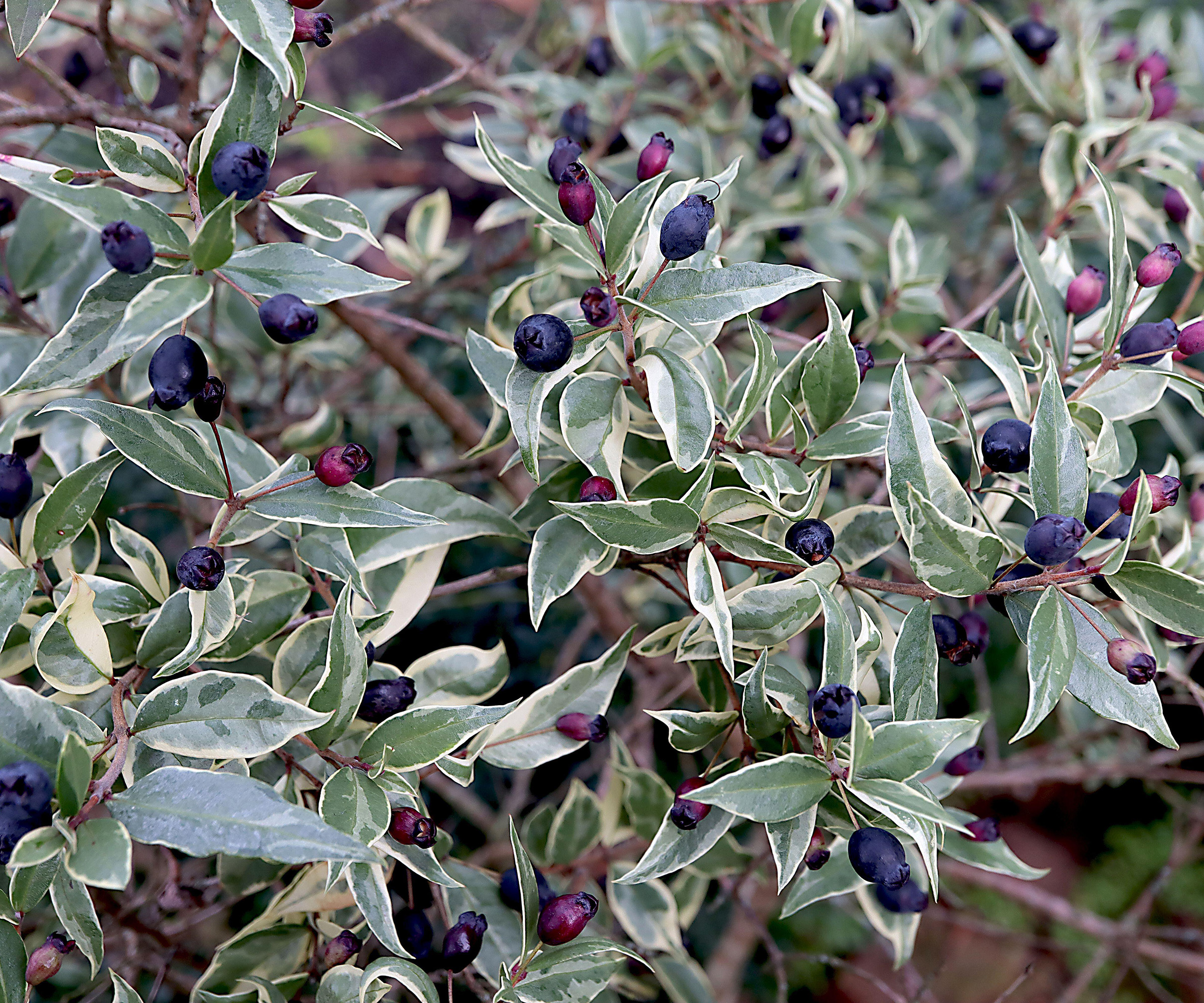
Myrtles are a great choice for front yards
This fragrant evergreen shrub (also known as Myrtus communis) has neat, glossy green leaves. A Christmas wreath that smells as good as it looks makes sense for the interior of your home. Adding myrtle to the mix will create a deliciously spicy scent.
It is best grown in a pot, at least 12in in diameter, as it can grow to over 6ft tall. It needs full sun, a very sheltered spot and moist, well-drained soil.
In the growing season, add a potash-rich feed on a regular basis. The leaves are edible and can be used in the same way as bay to add depth and flavor to winter stews and casseroles.
Nordmann Fir
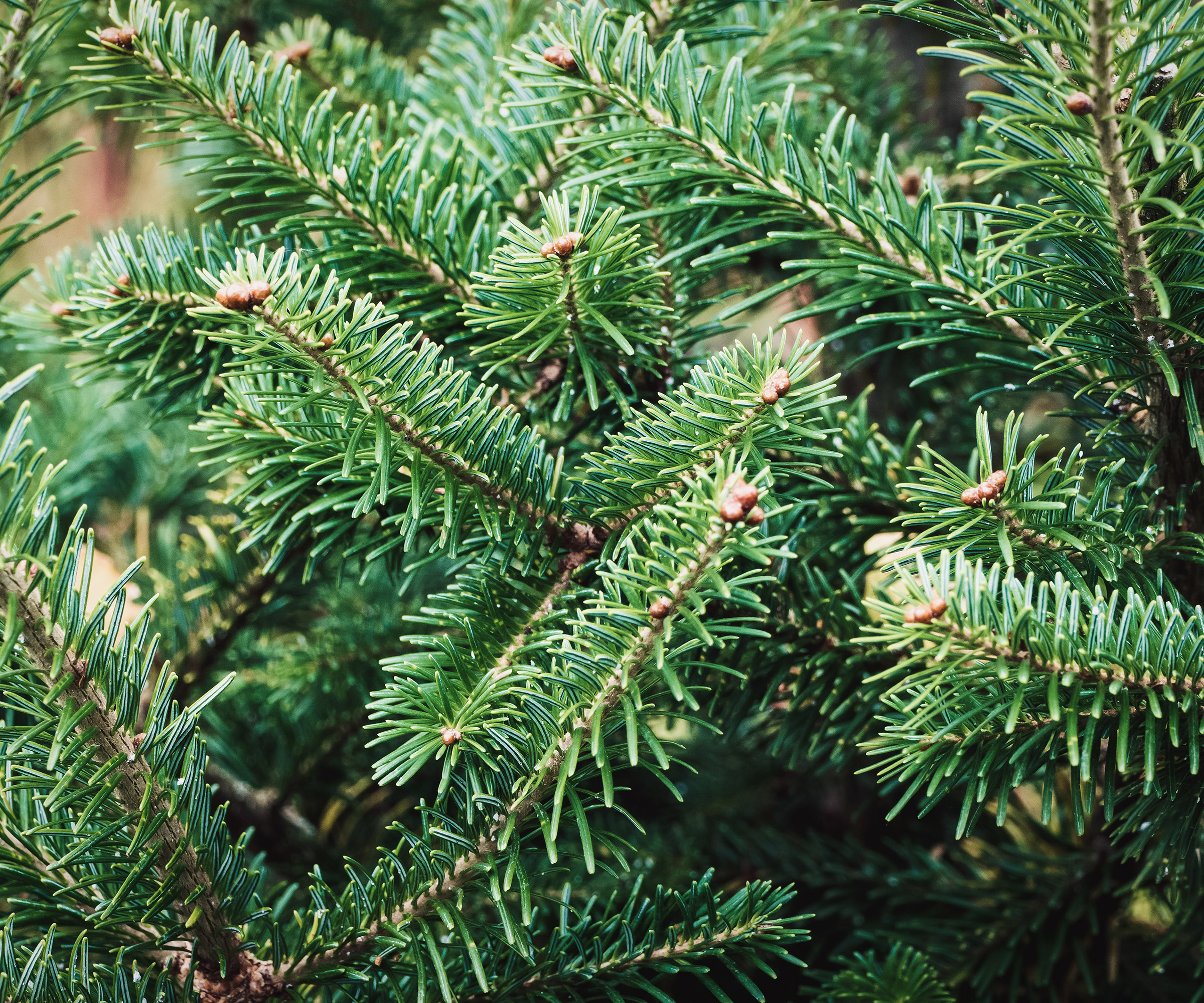
The Nordmann fir gives classic Christmas vibes
With no-drop needles and a warm, pine scent, this is a tall but slow-growing tree, with foliage that makes a classic festive statement. It needs neutral to acid soil, and a sunny, sheltered spot.
It is not a tree for small gardens, given it will grow at least 40ft tall over 20 years. The size will be controlled if it is grown in a container. Pot-grown trees may only last for a few years, however.
There is no need to prune a Nordmann fir, except for the removal of any dead or brown branches. It's a great choice for your indoor Christmas tree too, as it's long lasting and won't shed needles.
Lawson’s Cypress
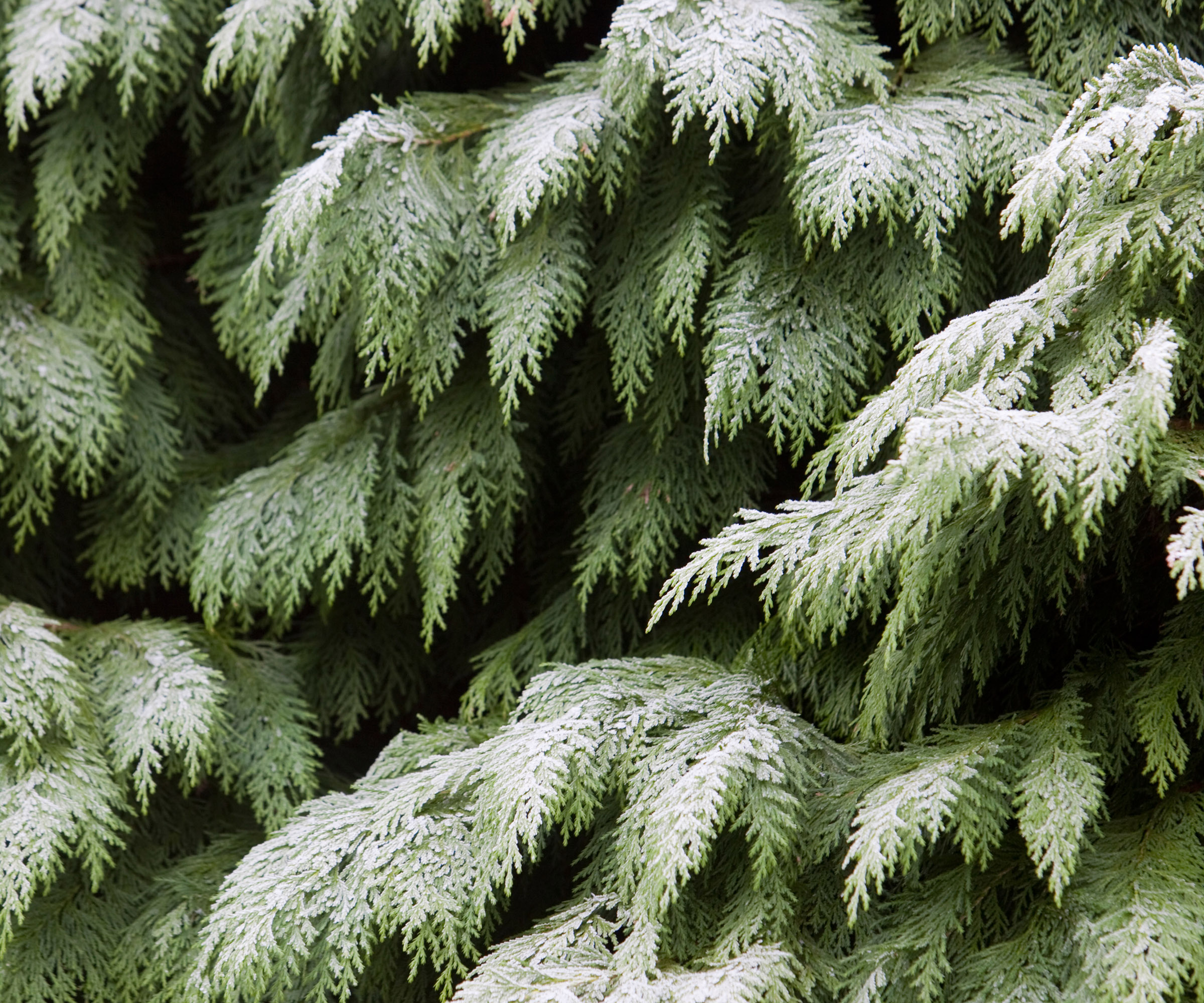
Lawson’s Cypress is planted as a bare root tree in winter
The feathery, fan-shaped foliage of this evergreen tree makes a particularly attractive addition to a wreath. It has a pretty blue/green tinge which should be mingled with dark green leaves and red berries.
Often used as a hedging plant, as well as a standalone tree, it is fast growing and tops 40ft tall at full-height, so it does need to be carefully pruned at least twice a year and is unsuitable for smaller plots.
It needs full sun and moist, well-drained soil.

Tom is an interior design specialist and the founder of Wreaths, an online store specialising in both luxury wreaths and high quality wreath supplies.
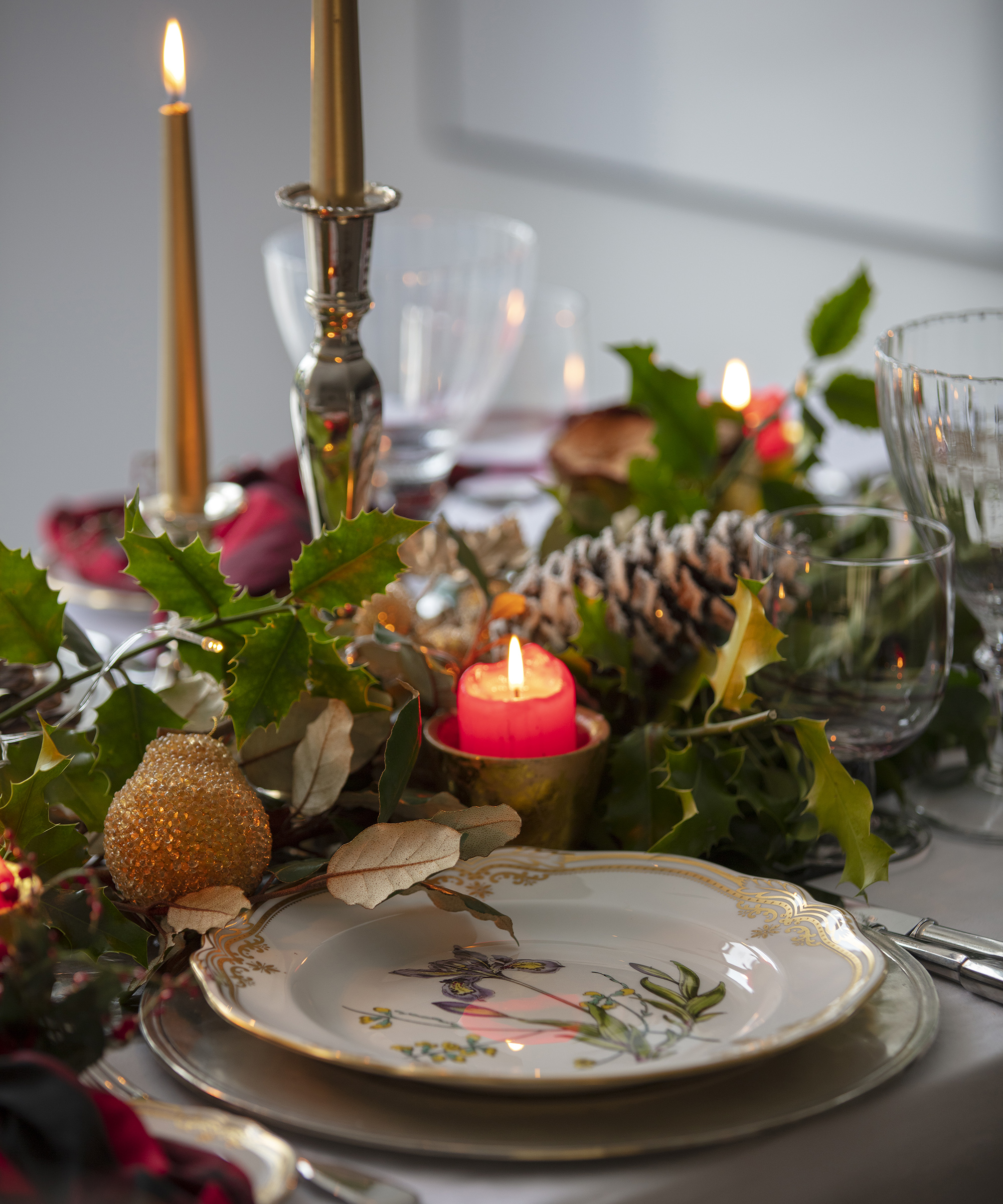
Pine cones are a great way to add interest to your decorations whilst keeping the natural aesthetic
FAQs
What is the best foliage for a Christmas table?
Holly is perhaps the most traditional choice. Its textural leaves have a glossy green sheen and the flashes of red berries are a standout feature. But be careful having their prickly leaves within reach of small, curious hands.
Eucalyptus is the more contemporary choice, with its silvery color suiting more muted decor. It also gives off a lovely scent.
Anything from evergreen pines will give a festive nordic feel to your Christmas table. Opt for varieties which won't shed their needles such as the popular Nordmann fir.
How to keep Christmas foliage fresh indoors?
'For keeping your Christmas foliage green and healthy, the two issues I typically see are inconsistent watering and placement in direct sunlight or near a heat source,' outlines Tom Yates, founder of Wreaths.
'It’s important that you research how much water your foliage requires and stick to the recommended guidelines, and ensure that you’re not placing any real foliage next to a source of heat, or exposed to constant sunlight (especially if you live in a warmer climate).'
Natural Christmas decorations that use foliage are environmentally sound and will help keep costs down over the holiday period. They do take a bit of time and effort, and this could be turned into a festive activity for the family to get involved in.
An experienced freelance journalist, editor and columnist writing for magazines and websites, Fiona now specializes in gardens. She enjoys finding and writing about all kinds, from the tiniest town plots to impressively designed ones in grand country houses.
